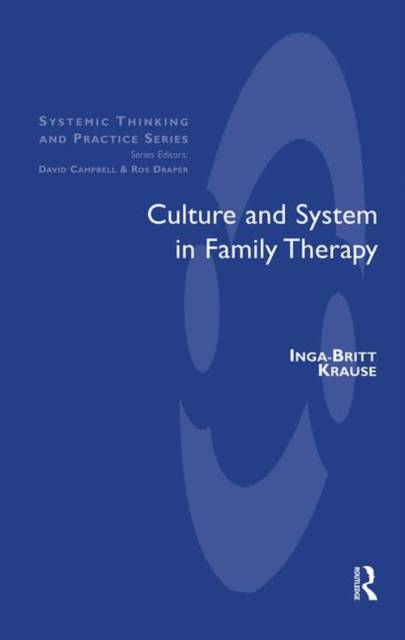
- Afhalen na 1 uur in een winkel met voorraad
- Gratis thuislevering in België vanaf € 30
- Ruim aanbod met 7 miljoen producten
- Afhalen na 1 uur in een winkel met voorraad
- Gratis thuislevering in België vanaf € 30
- Ruim aanbod met 7 miljoen producten
Zoeken
Omschrijving
Starting with the MacPherson Report and its pronouncements on racism in Britain and in particular 'institutionalised racism', Dr Krause focuses in this important book on the practice of family therapy and draws on her expertise as both anthropologist and systemic family psychotherapist to formulate a cogent critical evaluation of the field. At the heart of her book, furnished with very useful clinical material is a concern to identify the necessary conditions for an 'anti-discriminatory, non-ethnocentric and ethical way of working cross-culturally'. In illuminating the way in which underlying and frequently unexamined assumptions serve to perpetuate institutionally discriminatory outcomes, the author outlines a model for the development of a culturally sensitised, questioning, and self-reflexive practice. This book will serve as an individual reference-point for all those concerned to avoid and eliminate institutional discrimination.
Specificaties
Betrokkenen
- Auteur(s):
- Uitgeverij:
Inhoud
- Aantal bladzijden:
- 152
- Taal:
- Engels
- Reeks:
Eigenschappen
- Productcode (EAN):
- 9780367105211
- Verschijningsdatum:
- 14/06/2019
- Uitvoering:
- Hardcover
- Formaat:
- Genaaid
- Afmetingen:
- 152 mm x 229 mm
- Gewicht:
- 439 g

Alleen bij Standaard Boekhandel
+ 337 punten op je klantenkaart van Standaard Boekhandel
Beoordelingen
We publiceren alleen reviews die voldoen aan de voorwaarden voor reviews. Bekijk onze voorwaarden voor reviews.











